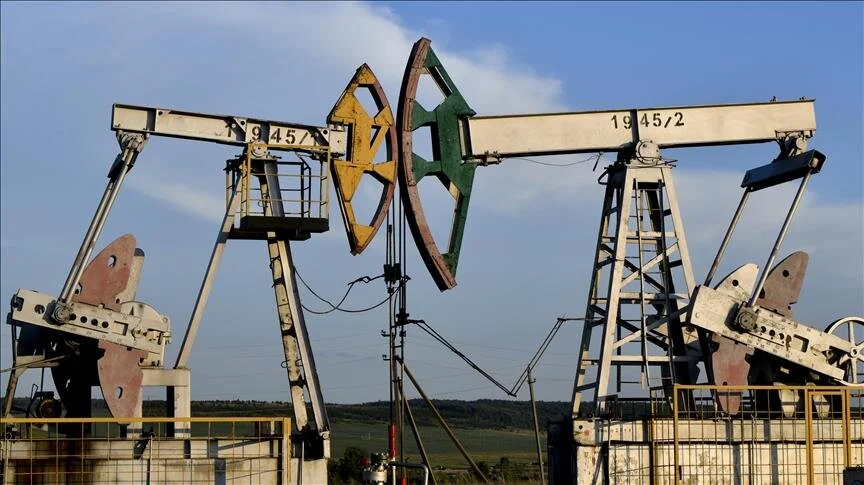Oil prices are predicted to show significant volatility in the near term over geopolitical risks after hitting the highest levels of the year due to supply concerns caused by the Iran-Israel tension.
The tensions between Iran and Israel intensified on Saturday following Tehran’s surprising direct drone and missile attacks on Israel in retaliation for Israel’s April 1 attack on the Iranian Embassy in Damascus.
Heightening tensions in the Middle East, home to most of the world’s oil resources, raised concerns that the global oil supply will be disrupted and oil prices will rise.
Due to these fears, the price of International benchmark Brent crude had exceeded $92 a barrel on April 12, ahead of Tehran’s move. This price was the highest level since October 2023, amid expectations that Iran would launch a retaliatory attack against Israel, as a barrel of American benchmark West Texas Intermediate (WTI) crude hit $87.67.
However, following the attack, Iran’s statement on April 14th that the military operation was successful and there will be no further attacks helped to alleviate the risk perception, albeit to a limited extent. This situation helped ease some of the upward pressure on oil prices on the first trading day.
While the debate on how and when Tel Aviv would respond to Tehran’s retaliatory strike continued, oil prices followed a volatile course during the week.
The prices had given back most of the gain during the day after surging upwards on Friday morning with the news that Israel launched an attack on Iran.
The barrel price of Brent oil after rising to $91.05 on the first trading day of the week fell to $86.09 on Thursday. The barrel of WTI crude oil hovered between $81.56 and 86.28 throughout the week.
– The premium for geopolitical risk is expected to decline steadily
Geopolitical tensions continue to be a major risk factor for the oil market, according to Jorge Leon, senior vice president of Norway-based consultancy Rystad Energy.
Leon said that oil prices increased sharply upon the news that Israel had attacked Iran and later declined further.
“While it is difficult to assess whether this a temporary blip or the start of a new escalation in the conflict between Iran and Israel, the initial market reaction suggests the former is more likely.”
Adding that the non-escalation scenario between the two nations is the most likely, Leon implied that this would still involve calibrated attacks between parties as it appears to have been the case with Israel’s attack on Friday.
“If there is one certainty, it is that geopolitics will play an even bigger role in the oil market in the coming days and weeks. As such, the market can expect significant volatility in the near future – with Friday’s attack a case in point,” he said.
“Rystad Energy calculates that ‘fair value’ of Brent for the month of April, based purely on supply and demand fundamentals, is slightly below $83 per barrel. This means the current geopolitical risk premium is around $5 to $6 per barrel.”
“We reiterate that barring a significant escalation in conflict in the Middle East, we believe that the geopolitical risk premium will stabilize and gradually decrease,” Leon said.
According to Leon, there are two reasons for this assertion, the first one is the fact that OPEC+ holds an unprecedentedly large volume of spare capacity, at close to 7 million barrels per day, while the second one is that after a few weeks, in the absence of actual supply disruptions, geopolitical fatigue starts to play a role.
– OPEC+ may come into play in case of higher price increases
Gaurav Sharma, an independent London-based oil market analyst, said oil prices are likely to remain elevated over the short-term at their current 6-month high levels until there is a winding down of tensions in the Middle East.
Pointing to recent developments in the region, “It’s a fast-moving situation but Israeli action looks limited in scope, more of a warning than an attack. Iran is also downplaying it. Unless there is an escalation, oil prices will stay within the recent range.” Sharma said.
According to Sharma, risk premium in the oil market is not what it used to be.
“That’s down to healthy non-OPEC oil in the market from the US, Brazil, Canada and Norway, and newer exporters like Guyana. Therefore, should Israel respond in kind to Iran’s ballistic missile and drone attacks on its territory, you will likely see Brent oil futures oscillate between $85-95 per barrel,” he said.
He also said that if there is a major escalation in the Middle East, OPEC+ will drop its voluntary oil production cuts as it would not like very high prices above $100.
Sharma said that the spare production capacity in the market will be used if geopolitical tensions persist.

